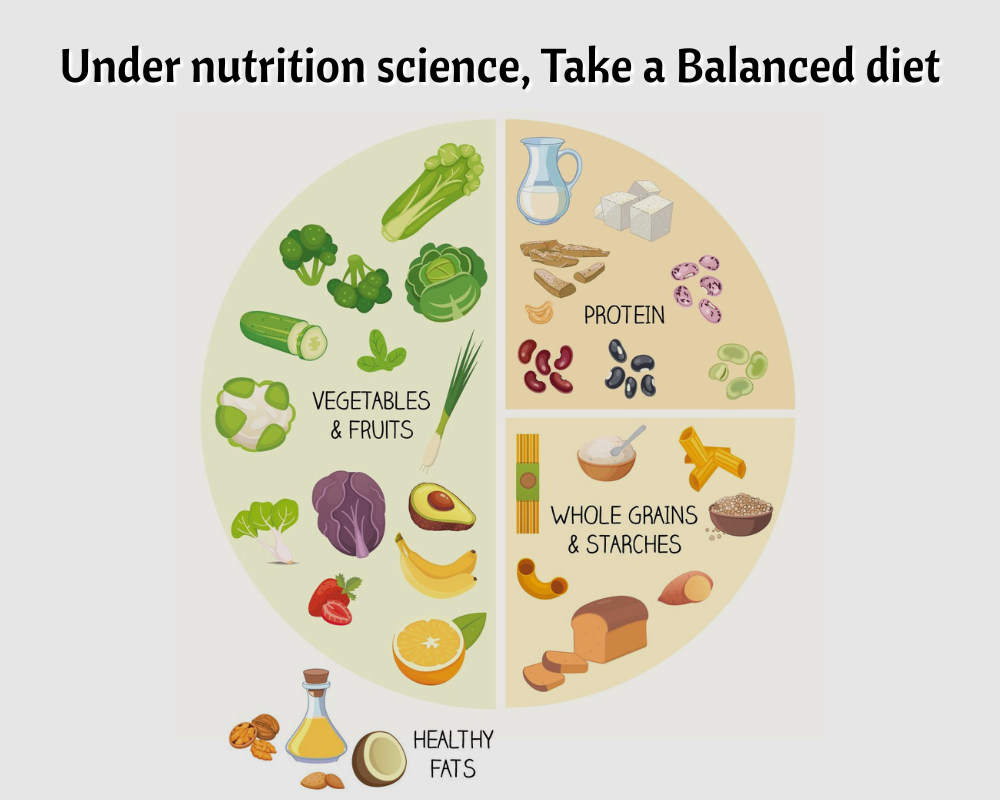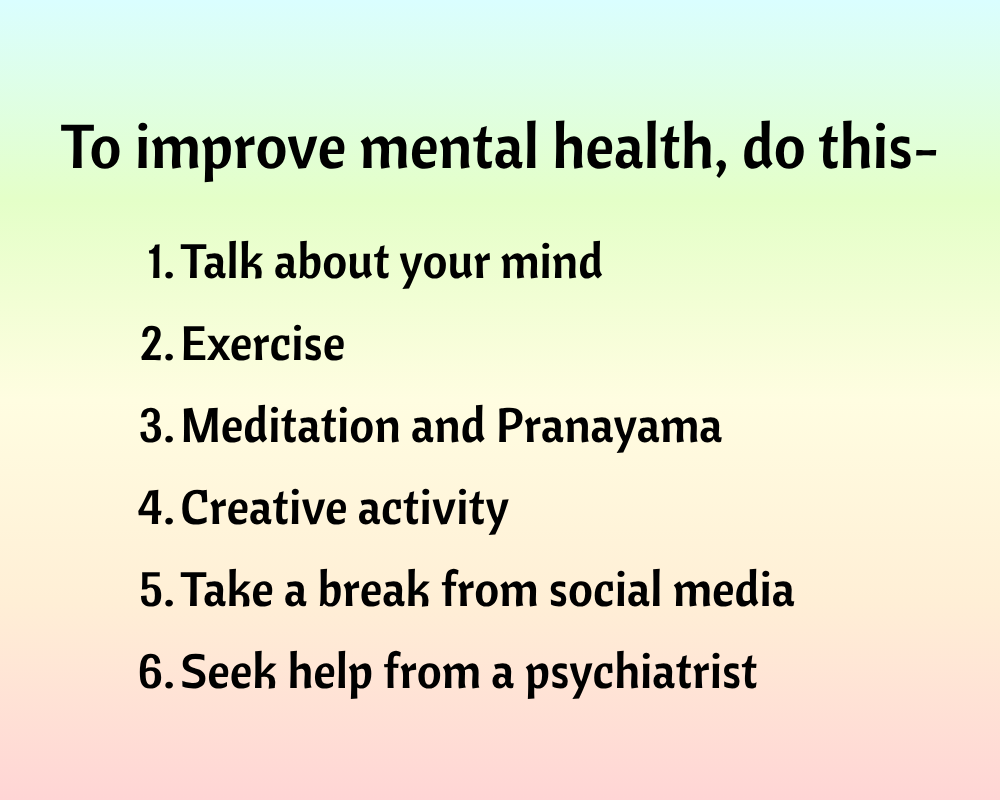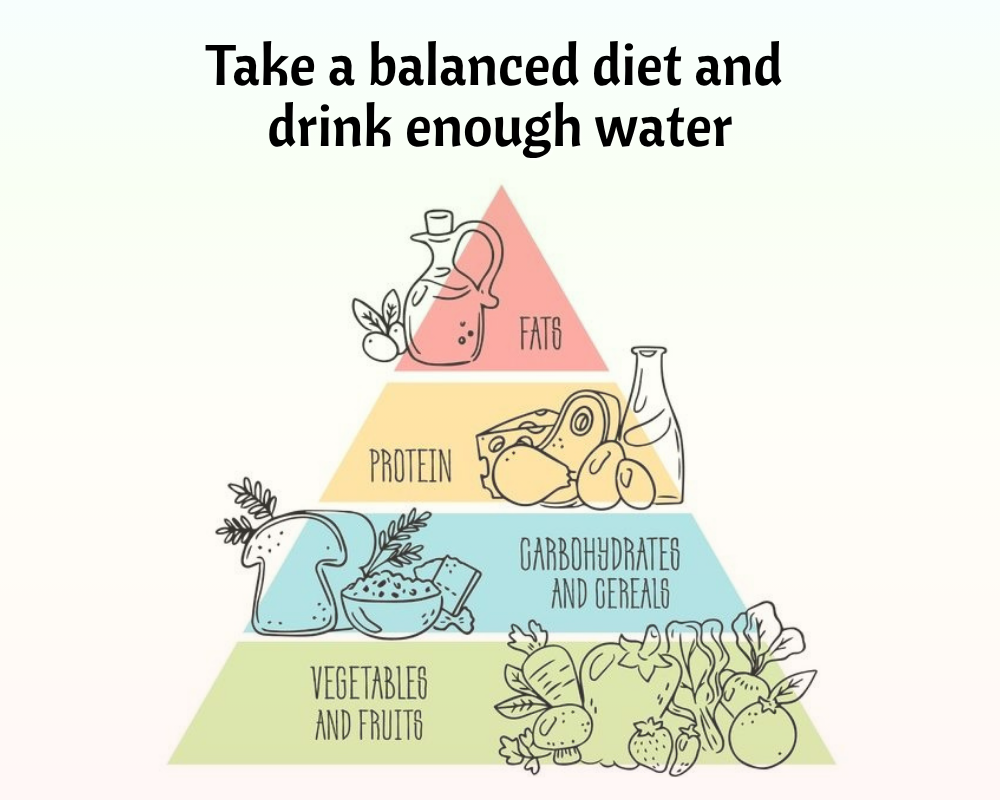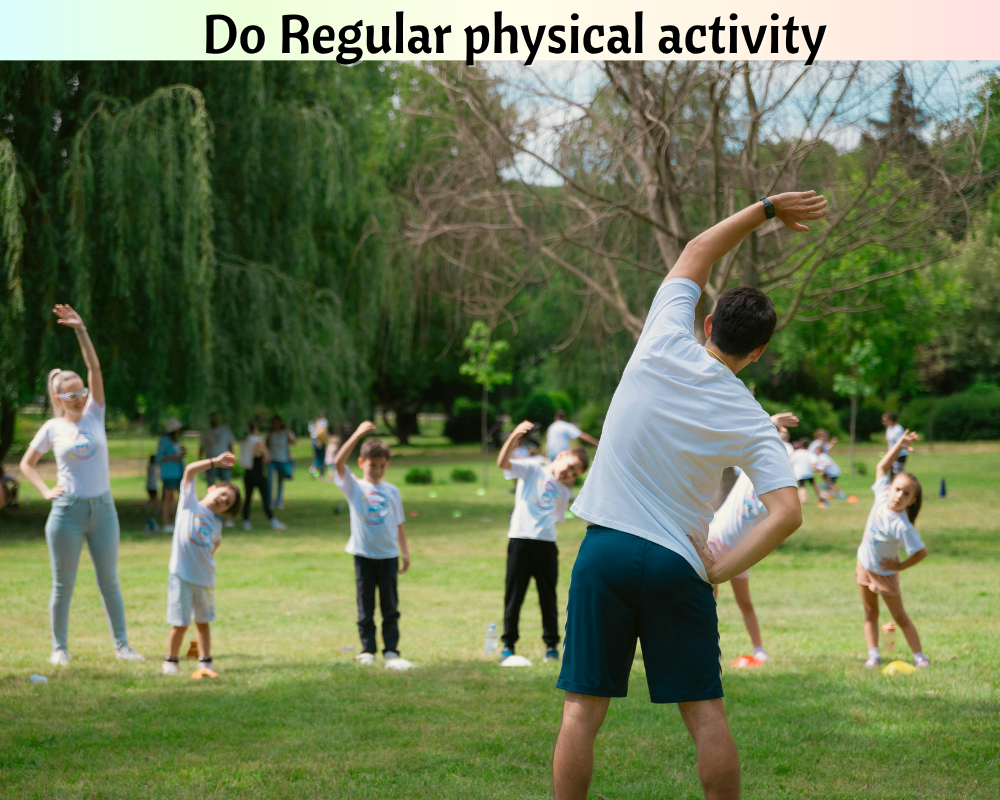Health Science: Introduction-
Table of Contents
In the present times, every person is extremely busy in the race for career, goals, and competition. Due to this busyness, the ill effects of rapidly changing routine, irregular lifestyle, unbalanced and wrong eating habits, lack of physical activities (yoga and exercise), mental stress, lack of sleep, etc., are also being seen on our health. Most people in this world are facing many types of problems related to their health. Therefore, to solve all these problems, the importance of health science has increased more than ever.
Health Science is a science under which all aspects related to the physical and mental health of humans are studied. It is not only limited to the treatment of diseases, but also helps in preventing diseases, improving lifestyle, and, in addition to this, keeping the body completely healthy. The main objective of health science is that every human being can live their entire life with complete health and activeness.
In today’s era, under health science, health is not limited only to the state of being free from disease or its treatment, but it reflects the state of being completely healthy, physically, mentally, and socially. The World Health Organization also supports this definition. Health science also works on this concept and makes a significant contribution towards making humans completely healthy. In short, health science is a life partner that shows us the way to live a healthy, strong, and happy life.
New research is of special importance in health science. Learning about new diseases, understanding their causes, and then developing effective strategies for their prevention or treatment is its basic process. The COVID-19 pandemic has made it even clearer how crises can be dealt with at the global level with the help of a scientific approach and rapid research. Another important aspect of health science is that it also works towards providing health services to all sections of society. From rural areas to urban settlements, spreading health awareness, conducting vaccination campaigns, improving nutrition, and paying attention to the health of women and children are the main objectives of Health Science.
So, Health Science is not just an academic or technical subject, but it is a human science directly related to human life. Health Science teaches us how we can live a long life by staying physically and mentally healthy, not only long but also lead a quality, active, and balanced life. Health is the most valuable asset in life. When our body is completely healthy, our mind is calm, and our thinking is positive, only then can we live our life to the fullest with full energy, confidence, and activity.
Health Science: Main Branches-
Health Science is a multifaceted subject and an extremely important field. Its purpose is not only to diagnose and treat diseases, but also to improve overall human health, improve their quality of life, and find ways to prevent and solve diseases. This science provides information related to the human body and its health from every perspective, biological, social, behavioral, and technical.
Health science is divided into various branches, so that its study and research can be more systematic and more effective. Each of these branches has its specific field of work. So let’s know in detail about the main branches of health science.
A. Medical Science-
This is the oldest and most comprehensive branch of health science. Its purpose is to study, diagnose, treat, and solve various diseases arising in the body. There are many sub-branches of medical science. Such as-
1- Anatomy- To study the structure of the body and each organ separately.
2- Physiology- To understand the functioning of each organ of the body.
3- Pathology- Studying the causes of diseases and their different effects.
4- Pharmacology- Studying medicines and their different effects on the body.
5- Surgery- Treating and resolving diseased organs through surgery.
B. Dental Science-
Under Health Science, diseases related to the mouth, teeth, gums, and jaws are studied. It is a specialized branch that includes teeth cleaning, treatment of caries, root canal, implant, etc.
C. Medicine or Pharmacology-
Under this branch, information related to the manufacture, development, analysis, and distribution of medicines is studied, including which medicine is more effective for which disease and what effect it has on the body. Its major sub-branches are as follows.
1. Pharmaceutical Chemistry.
2. Pharmacology.
3. Pharmacognosy.
4. Clinical Pharmacy.
D. Nursing Science-
Under Health Science, Nursing is the branch that provides patient care, mental support, timely intake of medicines, and assistance in the rehabilitation process. This field is a coordination of empathy, service spirit, and medical knowledge. Nurses are not only assistants to doctors but are also the first caregivers of patients.
E. Public Health-
Under Health Science, this branch concerns the health of not just one person, but the entire society or large community. Its objectives are as follows.
1- Prevention of diseases.
2- Spread of health education.
3- Nutrition improvement.
4- Hygiene and sanitation arrangements.
5- Vaccination campaign.
6- Epidemic control.
F. Pathology and Diagnostics-
Under Health Science, this branch is related to the identification and testing of diseases. The root of the disease is reached through various tests such as blood, urine, sputum, X-ray, CT scan, MRI, etc. This is the foundation of medical decision-making, because effective treatment is not possible without a correct diagnosis.
G. Physiotherapy-
Under Health Science, Physiotherapy is the branch in which an attempt is made to normalize all the activities of the body. It is beneficial for those who are having difficulty with physical activities after injury, trauma, or any operation. In this, techniques like exercise, massage, heat therapy, ultrasound, etc. are used.
H. Diet and Nutrition Science-
Under this branch, balanced diet, nutrients, and their effect on the body are studied. It helps control lifestyle diseases such as obesity, diabetes, high blood pressure, etc. In this, a dietician plans a suitable diet for the person, considering his age, condition, and health.
I. Psychology and Mental Health-
Under Health Science, this branch is related to mental and emotional health. It includes the study and treatment of stress, depression, anxiety, mental disorders, etc. This branch helps in maintaining mental balance by understanding the thinking, behavior, and emotions of a person.
J. Obstetrics and Gynecology-
Under Health Science, this branch is an important branch related to the reproductive system, pregnancy, childbirth, and related diseases related to women. Gynecologists solve all the problems related to reproduction, health, hormone imbalance, and menstruation in women.
K. Health Information Technology-
Under this modern branch, using computers and data technology, health services are made more organized and more effective. It includes electronic medical records, telemedicine, data analysis, etc.
Thus, various branches of health science together meet all the health needs from an individual to the entire society. In the modern era, where the number of diseases is increasing, the role of these branches of health science is becoming more important. The common objective of all these branches is to build a healthy society, attain a long life with good health, and serve humanity. Health science is not only a medium of treatment and solutions, but it is a philosophy of life that realizes the statement “A healthy mind resides in a healthy body.”
Other online resources related to Health-
If you want any other information about personal health, I can help you. You can visit the latest website, vijaybooks.store. There are other blogs related to this.
Another blog has also been written equivalent to this blog.
Health Science: Important and influential factors for good health-
Under Health Science, the important and influential factors for good health are as follows.
1. Health Science: Nutrition Science-

Under Health Science, for good health, a balanced diet, along with nutrients and their effect on the body, controlling lifestyle diseases, and a dietician plans a suitable diet for a person, keeping in view their age, condition, and health.
Importance of nutrients-
Important and influential nutrients for good health are carbohydrates, proteins, fats, vitamins, minerals, and water. In this, each nutrient has a different role. Such as providing energy, building tissue, antioxidant protection, etc. Along with this, each dietary fiber and microbiome has a different important role for intestinal health.
Balanced diet-
A balanced diet is a diet in which all the essential nutrients are present in appropriate quantities, which are necessary for the proper development of the body, energy production, and protection from diseases. It should include carbohydrates, proteins, fats, vitamins, minerals, fiber, and adequate water. A balanced diet not only gives energy to the body but also increases immunity and helps in body repair. A balanced diet may vary according to the age, sex, work, and health status of the individual.
2. Health Science: Exercise and Fitness-

Under Health Science, exercise means physical activities done to keep the body healthy, strong, and fit. It may include yoga, running, sports, sit-ups, weight lifting, push-ups, etc. It is described as follows.
1. Aerobic Exercise- Running, brisk walking, cycling, swimming, etc.
2. Anaerobic Exercise- Weight training, High Intensity Interval Training (HIIT), etc.
3. Yoga and Stretching- Yoga postures, Pranayama, Balasana, Surya Namaskar, etc.
Benefits of exercise-
Exercise improves heart health, controls blood pressure, reduces weight and stress, strengthens muscles and bones, and increases flexibility.
3. Health Science: Mental Health-

Under Health Science, mental health means the emotional, psychological state of a person. It affects the ability to handle stress, relate to others, and make decisions.
Main aspects of mental health-
1- Emotional balance- Recognizing emotions such as happiness, sadness, anger, fear, and expressing them correctly.
2- Positive thinking- Self-esteem, self-confidence, and an optimistic attitude towards life.
3- Stress management- The ability to handle the pressures and difficulties in life.
4- Good relationships- Maintaining good relationships with family, friends, and society.
5- Healthy lifestyle- Regular sleep, balanced diet, exercise, and distance from addiction.
Signs of deteriorating mental health-
The signs of deteriorating mental health are as follows. Such as feeling constant sadness or anxiety, lack of energy or fatigue, changes in appetite or sleep, lack of interest in any work, suicidal thoughts, excessive consumption of drugs, social isolation, or anger, etc.
Measures to improve mental health-
Measures to improve mental health are as follows.
1. Talk about your mind- Share your thoughts with family or friends.
2. Exercise- Do light exercise or yoga daily.
3. Meditation and Pranayama- Meditate to calm the mind.
4. Creative activity- Engage in things like painting, writing, and music.
5. Take a break from social media- Do a digital detox if needed.
6. Seek help from a psychiatrist- If needed, meet a counselor, psychologist, or psychiatrist.
4. Health Science: Epidemiology and Prevention-
Epidemiology and Prevention is an important subject under Health Science that helps to understand how diseases arise, spread, and how they can be prevented.
Episode-
An episode is the study of what causes a disease, how it affects the body, and what changes occur in it.
Prevention of diseases-
There are three levels of disease prevention.
1. Primary prevention-
Preventing a disease before it occurs is primary prevention. Such as vaccination, hygiene, nutrition, health education, etc.
2. Secondary prevention-
Identifying a disease in its early stages and treating it is secondary prevention. Such as regular checkups, early treatment, screening for diseases like cancer, diabetes, etc.
3. Tertiary prevention-
Reducing the damage caused by a disease is tertiary prevention. Such as rehabilitation, physiotherapy, lifestyle changes, etc.
Preventive measures for common diseases-
Type of disease
Communicable diseases
Non-communicable diseases
Mental diseases
Preventive measures
Vaccination, hand washing, and clean water
Exercise, a balanced diet, and stress management
Meditation, counselling, and social support
From pathology, we understand the disease, and from prevention, we can stop the disease.
Health Science: Changes in daily lifestyle-
Under Health Science, if some small changes in your daily lifestyle are made regularly, then they can have a huge positive impact on physical, mental, and emotional health.
1. Waking up early in the morning-

This keeps the energy intact throughout the day, the mind remains calm and focused, and the day can be planned well.
2. Meditation and yoga-

This reduces stress, maintains balance between mind and body, and increases self-control and patience.
3. Balanced diet-

For this, take fruits, vegetables, pulses, and whole grains, avoid fried, packaged, and sweet foods, and drink enough water daily.
4. Regular physical activity-

For this, walk or do light exercise for at least 30 minutes a day. So that the prevention of obesity, diabetes, heart disease, etc. can be planned.
5. Limiting screen time-

This protects eyes and sleep, saves time, and reduces mental fatigue.
6. Getting enough sleep-

Adults need at least 6 hours of sleep, which increases concentration and immunity and reduces the risk of mental diseases.
7. Personal hygiene-
This includes washing hands, cutting nails, and bathing, which can help prevent diseases, boost self-esteem, and promote social acceptance.
Health Science: Conclusion-
Health science is a multifaceted field that promotes a balanced, natural, and long-lasting life. It requires a balance of nutrition, regular exercise, mental health, timely sleep, pathology, and health technology. If you follow a balanced diet, exercise regularly, prioritize mental health, do active disease prevention, and connect with advanced health technology, you can live your entire life with confidence and activity, being healthy and energetic. Small changes are the foundation of big success. Health science is your biggest companion.
Stay healthy, stay safe!

